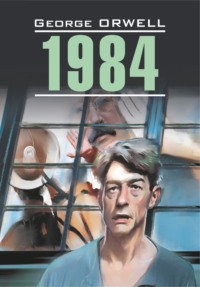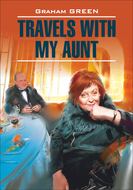Kitabı oku: «1984. Книга для чтения на английском языке», sayfa 4
Three months later FFCC had suddenly been dissolved with no reasons given. One could assume that Withers and his associates were now in disgrace32, but there had been no report of the matter in the Press or on the telescreen. That was to be expected, since it was unusual for political offenders to be put on trial or even publicly denounced. The great purges involving thousands of people, with public trials of traitors and thought-criminals who made abject confession of their crimes and were afterwards executed, were special showpieces not occurring oftener than once in a couple of years. More commonly, people who had incurred the displeasure of the Party simply disappeared and were never heard of again. One never had the smallest clue as to what had happened to them. In some cases they might not even be dead. Perhaps thirty people personally known to Winston, not counting his parents, had disappeared at one time or another.
Winston stroked his nose gently with a paper-clip. In the cubicle across the way Comrade Tillotson was still crouching secretively over his speakwrite. He raised his head for a moment: again the hostile spectacle-flash. Winston wondered whether Comrade Tillotson was engaged on the same job as himself. It was perfectly possible. So tricky a piece of work would never be entrusted to a single person: on the other hand, to turn it over to a committee would be to admit openly that an act of fabrication was taking place. Very likely as many as a dozen people were now working away on rival versions of what Big Brother had actually said. And presently some master brain in the Inner Party would select this version or that, would re-edit it and set in motion the complex processes of cross-referencing that would be required, and then the chosen lie would pass into the permanent records and become truth.
Winston did not know why Withers had been disgraced. Perhaps it was for corruption or incompetence. Perhaps Big Brother was merely getting rid of a too-popular subordinate. Perhaps Withers or someone close to him had been suspected of heretical tendencies. Or perhaps – what was likeliest of all – the thing had simply happened because purges and vaporizations were a necessary part of the mechanics of government. The only real clue lay in the words “refs unpersons”, which indicated that Withers was already dead. You could not invariably assume this to be the case when people were arrested. Sometimes they were released and allowed to remain at liberty for as much as a year or two years before being executed. Very occasionally some person whom you had believed dead long since would make a ghostly reappearance at some public trial where he would implicate hundreds of others by his testimony before vanishing, this time for ever. Withers, however, was already an unperson. He did not exist: he had never existed. Winston decided that it would not be enough simply to reverse the tendency of Big Brother’s speech. It was better to make it deal with something totally unconnected with its original subject.
He might turn the speech into the usual denunciation of traitors and thought-criminals, but that was a little too obvious, while to invent a victory at the front, or some triumph of over-production in the Ninth Three-Year Plan, might complicate the records too much. What was needed was a piece of pure fantasy. Suddenly there sprang into his mind, ready made as it were, the image of a certain Comrade Ogilvy, who had recently died in battle, in heroic circumstances. There were occasions when Big Brother devoted his Order for the Day to commemorating some humble, rank-and-file Party member33 whose life and death he held up as an example worthy to be followed. Today he should commemorate Comrade Ogilvy. It was true that there was no such person as Comrade Ogilvy, but a few lines of print and a couple of faked photographs would soon bring him into existence.
Winston thought for a moment, then pulled the speakwrite towards him and began dictating in Big Brother’s familiar style: a style at once military and pedantic, and, because of a trick of asking questions and then promptly answering them (“What lessons do we learn from this fact, comrades? The lesson – which is also one of the fundamental principles of Ingsoc – that,” etc., etc.), easy to imitate.
At the age of three Comrade Ogilvy had refused all toys except a drum, a sub-machine gun, and a model helicopter. At six – a year early, by a special relaxation of the rules – he had joined the Spies, at nine he had been a troop leader. At eleven he had denounced his uncle to the Thought Police after overhearing a conversation which appeared to him to have criminal tendencies. At seventeen he had been a district organizer of the Junior Anti-Sex League. At nineteen he had designed a hand-grenade which had been adopted by the Ministry of Peace and which, at its first trial, had killed thirty-one Eurasian prisoners in one burst. At twenty-three he had perished in action. Pursued by enemy jet planes while flying over the Indian Ocean with important despatches, he had weighted his body with his machine gun and leapt out of the helicopter into deep water, despatches and all – an end, said Big Brother, which it was impossible to contemplate without feelings of envy. Big Brother added a few remarks on the purity and single-mindedness of Comrade Ogilvy’s life. He was a total abstainer34 and a nonsmoker, had no recreations except a daily hour in the gymnasium, and had taken a vow of celibacy35, believing marriage and the care of a family to be incompatible with a twenty-four-hour-a-day devotion to duty. He had no subjects of conversation except the principles of Ingsoc, and no aim in life except the defeat of the Eurasian enemy and the hunting-down of spies, saboteurs, thought-criminals, and traitors generally.
Winston debated with himself whether to award Comrade Ogilvy the Order of Conspicuous Merit: in the end he decided against it because of the unnecessary cross-referencing that it would entail.
Once again he glanced at his rival in the opposite cubicle. Something seemed to tell him with certainty that Tillotson was busy on the same job as himself. There was no way of knowing whose job would finally be adopted, but he felt a profound conviction that it would be his own. Comrade Ogilvy, unimagined an hour ago, was now a fact. It struck him as curious that you could create dead men but not living ones. Comrade Ogilvy, who had never existed in the present, now existed in the past, and when once the act of forgery was forgotten, he would exist just as authentically, and upon the same evidence, as Charlemagne36 or Julius Caesar37.
V
In the low-ceilinged canteen, deep underground, the lunch queue jerked slowly forward. The room was already very full and deafeningly noisy. From the grille at the counter the steam of stew came pouring forth, with a sour metallic smell which did not quite overcome the fumes of Victory Gin. On the far side of the room there was a small bar, a mere hole in the wall, where gin could be bought at ten cents the large nip.
“Just the man I was looking for,” said a voice at Winston’s back.
He turned round. It was his friend Syme, who worked in the Research Department. Perhaps “friend” was not exactly the right word. You did not have friends nowadays, you had comrades: but there were some comrades whose society was pleasanter than that of others. Syme was a philologist, a specialist in Newspeak. Indeed, he was one of the enormous team of experts now engaged in compiling the Eleventh Edition of the Newspeak Dictionary. He was a tiny creature, smaller than Winston, with dark hair and large, protuberant eyes, at once mournful and derisive, which seemed to search your face closely while he was speaking to you.
“I wanted to ask you whether you’d got any razor blades,” he said.
“Not one!” said Winston with a sort of guilty haste. “I’ve tried all over the place. They don’t exist any longer.”
Everyone kept asking you for razor blades. Actually he had two unused ones which he was hoarding up. There had been a famine of them for months past. At any given moment there was some necessary article which the Party shops were unable to supply. Sometimes it was buttons, sometimes it was darning wool, sometimes it was shoelaces; at present it was razor blades. You could only get hold of them, if at all, by scrounging more or less furtively on the “free” market.
“I’ve been using the same blade for six weeks,” he added untruthfully.
The queue gave another jerk forward. As they halted he turned and faced Syme again. Each of them took a greasy metal tray from a pile at the end of the counter.
“Did you go and see the prisoners hanged yesterday?” said Syme.
“I was working,” said Winston indifferently. “I shall see it on the flicks, I suppose.”
“A very inadequate substitute,” said Syme.
His mocking eyes roved over Winston’s face. “I know you,” the eyes seemed to say, “I see through you. I know very well why you didn’t go to see those prisoners hanged.” In an intellectual way, Syme was venomously orthodox. He would talk with a disagreeable gloating satisfaction of helicopter raids on enemy villages, and trials and confessions of thought-criminals, the executions in the cellars of the Ministry of Love. Talking to him was largely a matter of getting him away from such subjects and entangling him, if possible, in the technicalities of Newspeak, on which he was authoritative and interesting. Winston turned his head a little aside to avoid the scrutiny of the large dark eyes.
“It was a good hanging,” said Syme reminiscently. “I think it spoils it when they tie their feet together. I like to see them kicking. And above all, at the end, the tongue sticking right out, and blue – a quite bright blue. That’s the detail that appeals to me.”
“Nex’, please!” yelled the white-aproned prole with the ladle.
Winston and Syme pushed their trays beneath the grille. On to each was dumped swiftly the regulation lunch – a metal pannikin of pinkish-grey stew, a hunk of bread, a cube of cheese, a mug of milkless Victory Coffee, and one saccharine tablet.
“There’s a table over there, under that telescreen,” said Syme. “Let’s pick up a gin on the way.”
The gin was served out to them in handleless china mugs. They threaded their way across the crowded room and unpacked their trays on to the metal-topped table, on one corner of which someone had left a pool of stew, a filthy liquid mess that had the appearance of vomit. Winston took up his mug of gin, paused for an instant to collect his nerve, and gulped the oily-tasting stuff down. When he had winked the tears out of his eyes he suddenly discovered that he was hungry. He began swallowing spoonfuls of the stew, which, in among its general sloppiness, had cubes of spongy pinkish stuff which was probably a preparation of meat. Neither of them spoke again till they had emptied their pannikins. From the table at Winston’s left, a little behind his back, someone was talking rapidly and continuously, a harsh gabble almost like the quacking of a duck, which pierced the general uproar of the room.
“How is the Dictionary getting on?” said Winston, raising his voice to overcome the noise.
“Slowly,” said Syme. “I’m on the adjectives. It’s fascinating.”
He had brightened up immediately at the mention of Newspeak. He pushed his pannikin aside, took up his hunk of bread in one delicate hand and his cheese in the other, and leaned across the table so as to be able to speak without shouting.
“The Eleventh Edition is the definitive edition,” he said. “We’re getting the language into its final shape – the shape it’s going to have when nobody speaks anything else. When we’ve finished with it, people like you will have to learn it all over again. You think, I dare say, that our chief job is inventing new words. But not a bit of it! We’re destroying words – scores of them, hundreds of them, every day. We’re cutting the language down to the bone. The Eleventh Edition won’t contain a single word that will become obsolete before the year 2050.”
He bit hungrily into his bread and swallowed a couple of mouthfuls, then continued speaking, with a sort of pedant’s passion. His thin dark face had become animated, his eyes had lost their mocking expression and grown almost dreamy.
“It’s a beautiful thing, the destruction of words. Of course the great wastage is in the verbs and adjectives, but there are hundreds of nouns that can be got rid of as well. It isn’t only the synonyms; there are also the antonyms. After all, what justification is there for a word which is simply the opposite of some other word? A word contains its opposite in itself. Take ‘good’, for instance. If you have a word like ‘good’, what need is there for a word like ‘bad’? ‘Ungood’ will do just as well – better, because it’s an exact opposite, which the other is not. Or again, if you want a stronger version of ‘good’, what sense is there in having a whole string of vague useless words like ‘excellent’ and ‘splendid’ and all the rest of them? ‘Plusgood’ covers the meaning, or ‘doubleplusgood’ if you want something stronger still. Of course we use those forms already. but in the final version of Newspeak there’ll be nothing else. In the end the whole notion of goodness and badness will be covered by only six words – in reality, only one word. Don’t you see the beauty of that, Winston? It was B.B.’s idea originally, of course,” he added as an afterthought.
A sort of vapid eagerness flitted across Winston’s face at the mention of Big Brother. Nevertheless Syme immediately detected a certain lack of enthusiasm.
“You haven’t a real appreciation of Newspeak, Winston,” he said almost sadly. “Even when you write it you’re still thinking in Oldspeak. I’ve read some of those pieces that you write in the Times occasionally. They’re good enough, but they’re translations. In your heart you’d prefer to stick to Oldspeak, with all its vagueness and its useless shades of meaning. You don’t grasp the beauty of the destruction of words. Do you know that Newspeak is the only language in the world whose vocabulary gets smaller every year?”
Winston did know that, of course. He smiled, sympathetically he hoped, not trusting himself to speak. Syme bit off another fragment of the dark-coloured bread, chewed it briefly, and went on:
“Don’t you see that the whole aim of Newspeak is to narrow the range of thought? In the end we shall make thoughtcrime literally impossible, because there will be no words in which to express it. Every concept that can ever be needed, will be expressed by exactly one word, with its meaning rigidly defined and all its subsidiary meanings rubbed out and forgotten. Already, in the Eleventh Edition, we’re not far from that point. But the process will still be continuing long after you and I are dead. Every year fewer and fewer words, and the range of consciousness always a little smaller. Even now, of course, there’s no reason or excuse for committing thoughtcrime. It’s merely a question of self-discipline, reality-control. But in the end there won’t be any need even for that. The Revolution will be complete when the language is perfect. Newspeak is Ingsoc and Ingsoc is Newspeak,” he added with a sort of mystical satisfaction. “Has it ever occurred to you, Winston, that by the year 2050, at the very latest, not a single human being will be alive who could understand such a conversation as we are having now?”
“Except —” began Winston doubtfully, and he stopped.
It had been on the tip of his tongue to say “Except the proles,” but he checked himself, not feeling fully certain that this remark was not in some way unorthodox. Syme, however, had divined what he was about to say.
“The proles are not human beings,” he said carelessly. “By 2050 – earlier, probably – all real knowledge of Oldspeak will have disappeared. The whole literature of the past will have been destroyed. Chaucer38, Shakespeare, Milton39, Byron – they’ll exist only in Newspeak versions, not merely changed into something different, but actually changed into something contradictory of what they used to be. Even the literature of the Party will change. Even the slogans will change. How could you have a slogan like ‘freedom is slavery’ when the concept of freedom has been abolished? The whole climate of thought will be different. In fact there will be no thought, as we understand it now. Orthodoxy means not thinking – not needing to think. Orthodoxy is unconsciousness.”
One of these days, thought Winston with sudden deep conviction, Syme will be vaporized. He is too intelligent. He sees too clearly and speaks too plainly. The Party does not like such people. One day he will disappear. It is written in his face.
Winston had finished his bread and cheese. He turned a little sideways in his chair to drink his mug of coffee. At the table on his left the man with the strident voice was still talking remorselessly away. A young woman who was perhaps his secretary, and who was sitting with her back to Winston, was listening to him and seemed to be eagerly agreeing with everything that he said. From time to time Winston caught some such remark as “I think you’re so right, I do so agree with you”, uttered in a youthful and rather silly feminine voice. But the other voice never stopped for an instant, even when the girl was speaking. Winston knew the man by sight, though he knew no more about him than that he held some important post in the Fiction Department. He was a man of about thirty, with a muscular throat and a large, mobile mouth. His head was thrown back a little, and because of the angle at which he was sitting, his spectacles caught the light and presented to Winston two blank discs instead of eyes. What was slightly horrible, was that from the stream of sound that poured out of his mouth it was almost impossible to distinguish a single word. Just once Winston caught a phrase – “complete and final elimination of Goldsteinism” – jerked out very rapidly and, as it seemed, all in one piece, like a line of type cast solid. For the rest it was just a noise, a quack-quack-quacking. And yet, though you could not actually hear what the man was saying, you could not be in any doubt about its general nature. He might be denouncing Goldstein and demanding sterner measures against thought-criminals and saboteurs, he might be fulminating against the atrocities of the Eurasian army, he might be praising Big Brother or the heroes on the Malabar front – it made no difference. Whatever it was, you could be certain that every word of it was pure orthodoxy, pure Ingsoc. As he watched the eyeless face with the jaw moving rapidly up and down, Winston had a curious feeling that this was not a real human being but some kind of dummy. It was not the man’s brain that was speaking, it was his larynx. The stuff that was coming out of him consisted of words, but it was not speech in the true sense: it was a noise uttered in unconsciousness, like the quacking of a duck.
Syme had fallen silent for a moment, and with the handle of his spoon was tracing patterns in the puddle of stew. The voice from the other table quacked rapidly on, easily audible in spite of the surrounding din.
“There is a word in Newspeak,” said Syme, “I don’t know whether you know it: duckspeak, to quack like a duck. It is one of those interesting words that have two contradictory meanings. Applied to an opponent, it is abuse, applied to someone you agree with, it is praise.”
Unquestionably Syme will be vaporized, Winston thought again. He thought it with a kind of sadness, although well knowing that Syme despised him and slightly disliked him, and was fully capable of denouncing him as a thought-criminal if he saw any reason for doing so. There was something subtly wrong with Syme. There was something that he lacked: discretion, aloofness, a sort of saving stupidity. You could not say that he was unorthodox. He believed in the principles of Ingsoc, he venerated Big Brother, he rejoiced over victories, he hated heretics, not merely with sincerity but with a sort of restless zeal, an up-to-dateness of information, which the ordinary Party member did not approach. Yet a faint air of disreputability always clung to him. He said things that would have been better unsaid, he had read too many books, he frequented the Chestnut Tree Café, haunt of painters and musicians. There was no law, not even an unwritten law, against frequenting the Chestnut Tree Café, yet the place was somehow ill-omened40. The old, discredited leaders of the Party had been used to gather there before they were finally purged. Goldstein himself, it was said, had sometimes been seen there, years and decades ago. Syme’s fate was not difficult to foresee. And yet it was a fact that if Syme grasped, even for three seconds, the nature of his, Winston’s, secret opinions, he would betray him instantly to the Thought Police. So would anybody else, for that matter41: but Syme more than most. Zeal was not enough. Orthodoxy was unconsciousness.
Syme looked up. “Here comes Parsons,” he said.
Something in the tone of his voice seemed to add, “that bloody fool”. Parsons, Winston’s fellow-tenant at Victory Mansions, was in fact threading his way across the room – a tubby, middle-sized man with fair hair and a froglike face. At thirty-five he was already putting on rolls of fat at neck and waistline, but his movements were brisk and boyish. His whole appearance was that of a little boy grown large, so much so that although he was wearing the regulation overalls42, it was almost impossible not to think of him as being dressed in the blue shorts, grey shirt, and red neckerchief of the Spies. In visualizing him one saw always a picture of dimpled knees and sleeves rolled back from pudgy forearms. Parsons did, indeed, invariably revert to shorts when a community hike or any other physical activity gave him an excuse for doing so. He greeted them both with a cheery “Hullo, hullo!” and sat down at the table, giving off an intense smell of sweat. Beads of moisture stood out all over his pink face. His powers of sweating were extraordinary. At the Community Centre you could always tell when he had been playing table-tennis by the dampness of the bat handle. Syme had produced a strip of paper on which there was a long column of words, and was studying it with an ink-pencil between his fingers.
“Look at him working away in the lunch hour,” said Parsons, nudging Winston. “Keenness, eh? What’s that you’ve got there, old boy? Something a bit too brainy for me, I expect. Smith, old boy, I’ll tell you why I’m chasing you. It’s that sub you forgot to give me.”
“Which sub is that?” said Winston, automatically feeling for money. About a quarter of one’s salary had to be earmarked for voluntary subscriptions, which were so numerous that it was difficult to keep track of them.
“For Hate Week. You know – the house-by-house fund. I’m treasurer for our block. We’re making an all-out effort – going to put on a tremendous show. I tell you, it won’t be my fault if old Victory Mansions doesn’t have the biggest outfit of flags in the whole street. Two dollars you promised me.”
Winston found and handed over two creased and filthy notes, which Parsons entered in a small notebook, in the neat handwriting of the illiterate.
“By the way, old boy,” he said. “I hear that little beggar of mine let fly at you with his catapult yesterday. I gave him a good dressing-down43 for it. In fact I told him I’d take the catapult away if he does it again.”
“I think he was a little upset at not going to the execution,” said Winston.
“Ah, well – what I mean to say, shows the right spirit, doesn’t it? Mischievous little beggars they are, both of them, but talk about keenness! All they think about is the Spies, and the war, of course. D’you know what that little girl of mine did last Saturday, when her troop was on a hike out Berkhamsted way? She got two other girls to go with her, slipped off from the hike, and spent the whole afternoon following a strange man. They kept on his tail for two hours, right through the woods, and then, when they got into Amersham, handed him over to the patrols.”
“What did they do that for?” said Winston, somewhat taken aback44. Parsons went on triumphantly:
“My kid made sure he was some kind of enemy agent – might have been dropped by parachute, for instance. But here’s the point, old boy. What do you think put her on to him in the first place? She spotted he was wearing a funny kind of shoes – said she’d never seen anyone wearing shoes like that before. So the chances were he was a foreigner. Pretty smart for a nipper of seven, eh?”
“What happened to the man?” said Winston.
“Ah, that I couldn’t say, of course. But I wouldn’t be altogether surprised if —” Parsons made the motion of aiming a rifle, and clicked his tongue for the explosion.
“Good,” said Syme abstractedly, without looking up from his strip of paper.
“Of course we can’t afford to take chances45,” agreed Winston dutifully.
“What I mean to say, there is a war on,” said Parsons.
As though in confirmation of this, a trumpet call floated from the telescreen just above their heads. However, it was not the proclamation of a military victory this time, but merely an announcement from the Ministry of Plenty.
“Comrades!” cried an eager youthful voice. “Attention, comrades! We have glorious news for you. We have won the battle for production! Returns now completed of the output of all classes of consumption goods show that the standard of living has risen by no less than 20 per cent over the past year. All over Oceania this morning there were irrepressible spontaneous demonstrations when workers marched out of factories and offices and paraded through the streets with banners voicing their gratitude to Big Brother for the new, happy life which his wise leadership has bestowed upon us. Here are some of the completed figures. Foodstuffs —”
The phrase “our new, happy life” recurred several times. It had been a favourite of late with the Ministry of Plenty. Parsons, his attention caught by the trumpet call, sat listening with a sort of gaping solemnity, a sort of edified boredom. He could not follow the figures, but he was aware that they were in some way a cause for satisfaction. He had lugged out a huge and filthy pipe which was already half full of charred tobacco. With the tobacco ration at 100 grammes a week it was seldom possible to fill a pipe to the top. Winston was smoking a Victory Cigarette which he held carefully horizontal. The new ration did not start till tomorrow and he had only four cigarettes left. For the moment he had shut his ears to the remoter noises and was listening to the stuff that streamed out of the telescreen. It appeared that there had even been demonstrations to thank Big Brother for raising the chocolate ration to twenty grammes a week. And only yesterday, he reflected, it had been announced that the ration was to be reduced to twenty grammes a week. Was it possible that they could swallow that, after only twenty-four hours? Yes, they swallowed it. Parsons swallowed it easily, with the stupidity of an animal. The eyeless creature at the other table swallowed it fanatically, passionately, with a furious desire to track down, denounce, and vaporize anyone who should suggest that last week the ration had been thirty grammes. Syme, too – in some more complex way, involving doublethink, Syme swallowed it. Was he, then, alone in the possession of a memory?
The fabulous statistics continued to pour out of the telescreen. As compared with last year there was more food, more clothes, more houses, more furniture, more cooking-pots, more fuel, more ships, more helicopters, more books, more babies – more of everything except disease, crime, and insanity. Year by year and minute by minute, everybody and everything was whizzing rapidly upwards. As Syme had done earlier Winston had taken up his spoon and was dabbling in the pale-coloured gravy that dribbled across the table, drawing a long streak of it out into a pattern. He meditated resentfully on the physical texture of life. Had it always been like this? Had food always tasted like this? He looked round the canteen. A low-ceilinged, crowded room, its walls grimy from the contact of innumerable bodies; battered metal tables and chairs, placed so close together that you sat with elbows touching; bent spoons, dented trays, coarse white mugs; all surfaces greasy, grime in every crack; and a sourish, composite smell of bad gin and bad coffee and metallic stew and dirty clothes. Always in your stomach and in your skin there was a sort of protest, a feeling that you had been cheated of something that you had a right to. It was true that he had no memories of anything greatly different. In any time that he could accurately remember, there had never been quite enough to eat, one had never had socks or underclothes that were not full of holes, furniture had always been battered and rickety, rooms underheated, tube trains crowded, houses falling to pieces, bread dark-coloured, tea a rarity, coffee filthy-tasting, cigarettes insufficient – nothing cheap and plentiful except synthetic gin. And though, of course, it grew worse as one’s body aged, was it not a sign that this was not the natural order of things, if one’s heart sickened at the discomfort and dirt and scarcity, the interminable winters, the stickiness of one’s socks, the lifts that never worked, the cold water, the gritty soap, the cigarettes that came to pieces, the food with its strange evil tastes? Why should one feel it to be intolerable unless one had some kind of ancestral memory that things had once been different?
He looked round the canteen again. Nearly everyone was ugly, and would still have been ugly even if dressed otherwise than in the uniform blue overalls. On the far side of the room, sitting at a table alone, a small, curiously beetle-like man was drinking a cup of coffee, his little eyes darting suspicious glances from side to side. How easy it was, thought Winston, if you did not look about you, to believe that the physical type set up by the Party as an ideal – tall muscular youths and deep-bosomed maidens, blond-haired, vital, sunburnt, carefree – existed and even predominated. Actually, so far as he could judge, the majority of people in Airstrip One were small, dark, and ill-favoured. It was curious how that beetle-like type proliferated in the Ministries: little dumpy men, growing stout very early in life, with short legs, swift scuttling movements, and fat inscrutable faces with very small eyes. It was the type that seemed to flourish best under the dominion of the Party.
were now in disgrace – (разг.) нынче были в опале
[Закрыть]
rank-and-file Party member – (разг.) рядовой член партии
[Закрыть]
a total abstainer – (разг.) абсолютный трезвенник
[Закрыть]
had taken a vow of celibacy – (разг.) принял обет безбрачия
[Закрыть]
Charlemagne – Карл Великий (742–814), король франков, который покорил Европу, объединив в 800 г. христианские страны; оказал огромное влияние на европейскую цивилизацию, установив новую правовую систему и поощряя развитие искусства, литературы и образования
[Закрыть]
Julius Caesar – Юлий Цезарь (100–44 до н. э.), римский политик, военачальник, писатель; взял власть в Риме, изменил политический строй в стране, став первым императором; также известен как первый римский властитель, напавший на Британию
[Закрыть]
Chaucer – Джефри Чосер (1340–1400), английский писатель
[Закрыть]
Milton – Джон Милтон (1608–1674), один из величайших английских поэтов
[Закрыть]
was somehow ill-omened – (разг.) пользовалось дурной славой
[Закрыть]
for that matter – (разг.) раз уж на то пошло
[Закрыть]
the regulation overalls – (воен.) форма, форменная одежда установленного образца
[Закрыть]
gave him a good dressing-down – (разг.) устроил ему головомойку; задал хорошую взбучку
[Закрыть]
somewhat taken aback – (разг.) слегка ошарашенно
[Закрыть]
we can’t afford to take chances – (разг.) мы не можем позволить себе рисковать
[Закрыть]








